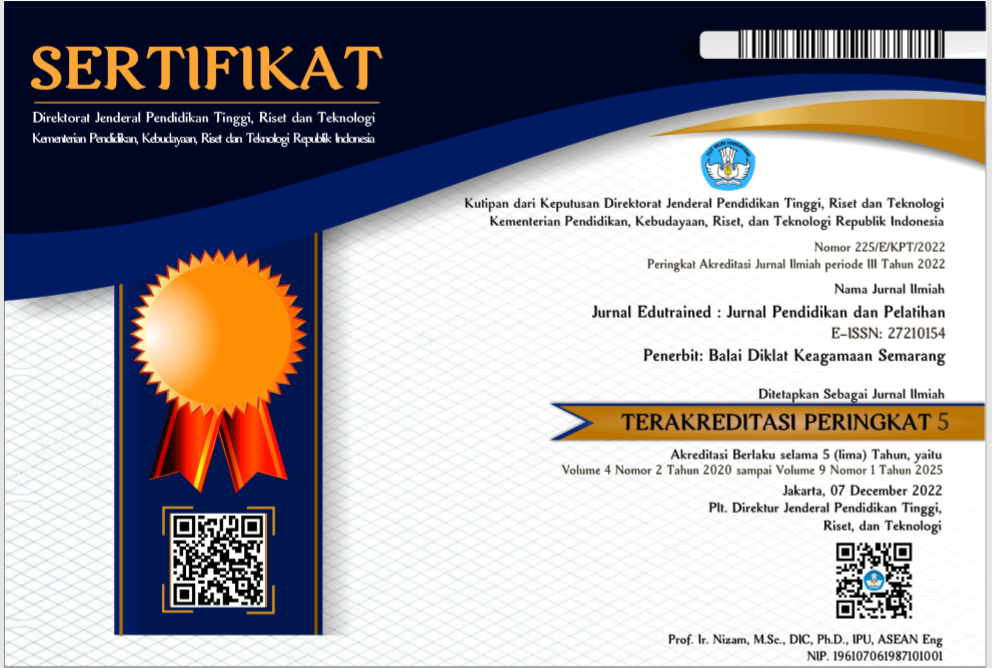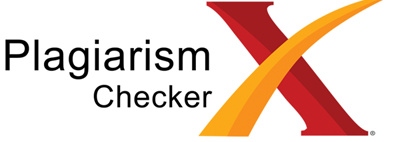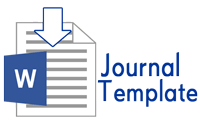Pembelajaran PAI dengan Pendekatan Integratif pada Masa Pandemi Covid-19 di SD PTQ Annida Salatiga
Abstract
The purpose of this study was to find out how the implementation of integrated Islamic Religious Education learning in the education unit was comprehensive. This research is a field research with a qualitative approach. The research was conducted in January-March 2021 at SD Plus Tahfizhul Quran (PTQ) Annida, Salatiga. Data collection techniques by observation, interviews, and documentation. Data analysis was carried out by presenting, reducing, and drawing conclusions. The implementation of integrated PAI learning includes existing programs at school and collaboration with parents at home. Aspects of integrated PAI learning directly at SD Plus Tahfizhul Quran (PTQ) ANNIDA Al-Qur'an, fiqh and morals. The material of the Qur'an includes the habit of reading and writing the Qur'an and memorizing the Qur'an. Fiqh material includes dhuha prayer, midday prayer and asr prayer in congregation. While the moral material is the habit of tolerance, sympathy, respect for parents, respect for teachers, and help. The results of this integrative PAI learning are that more than 75% of children pray in an orderly manner, habituation of sunnah and congregational prayers, the ability to recite and memorize the Qur'an, positive habits at home, as well as empathy and sympathy from children. child. The obstacles that arise are that teachers cannot monitor fully because students do not go to school, students are less enthusiastic, and communication is not optimal. The solution presented is to simplify learning instructions by the teacher, establish the best possible communication, and give appreciation to students to increase their enthusiasm.








